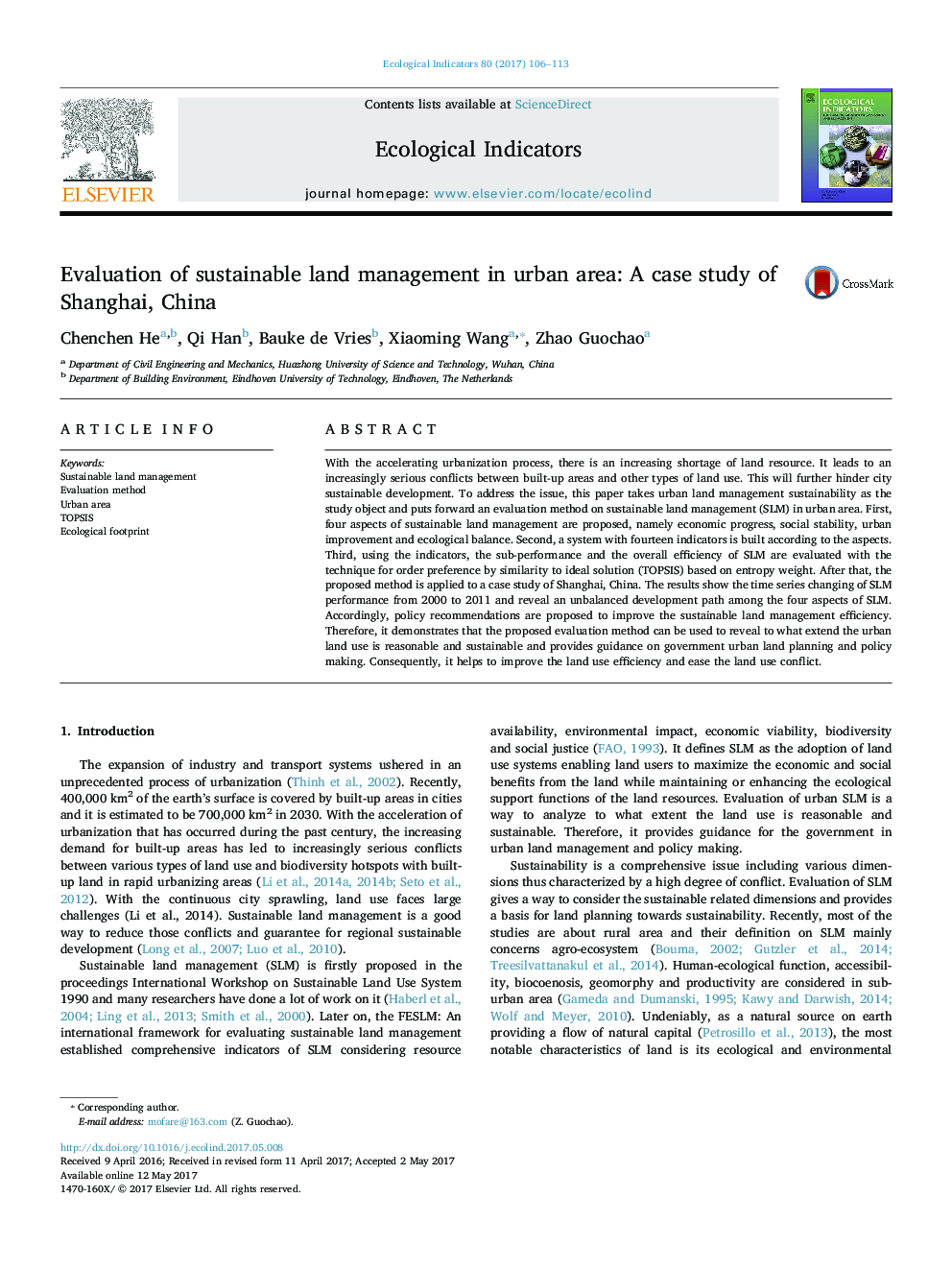| Article ID | Journal | Published Year | Pages | File Type |
|---|---|---|---|---|
| 5741372 | Ecological Indicators | 2017 | 8 Pages |
With the accelerating urbanization process, there is an increasing shortage of land resource. It leads to an increasingly serious conflicts between built-up areas and other types of land use. This will further hinder city sustainable development. To address the issue, this paper takes urban land management sustainability as the study object and puts forward an evaluation method on sustainable land management (SLM) in urban area. First, four aspects of sustainable land management are proposed, namely economic progress, social stability, urban improvement and ecological balance. Second, a system with fourteen indicators is built according to the aspects. Third, using the indicators, the sub-performance and the overall efficiency of SLM are evaluated with the technique for order preference by similarity to ideal solution (TOPSIS) based on entropy weight. After that, the proposed method is applied to a case study of Shanghai, China. The results show the time series changing of SLM performance from 2000 to 2011 and reveal an unbalanced development path among the four aspects of SLM. Accordingly, policy recommendations are proposed to improve the sustainable land management efficiency. Therefore, it demonstrates that the proposed evaluation method can be used to reveal to what extend the urban land use is reasonable and sustainable and provides guidance on government urban land planning and policy making. Consequently, it helps to improve the land use efficiency and ease the land use conflict.
